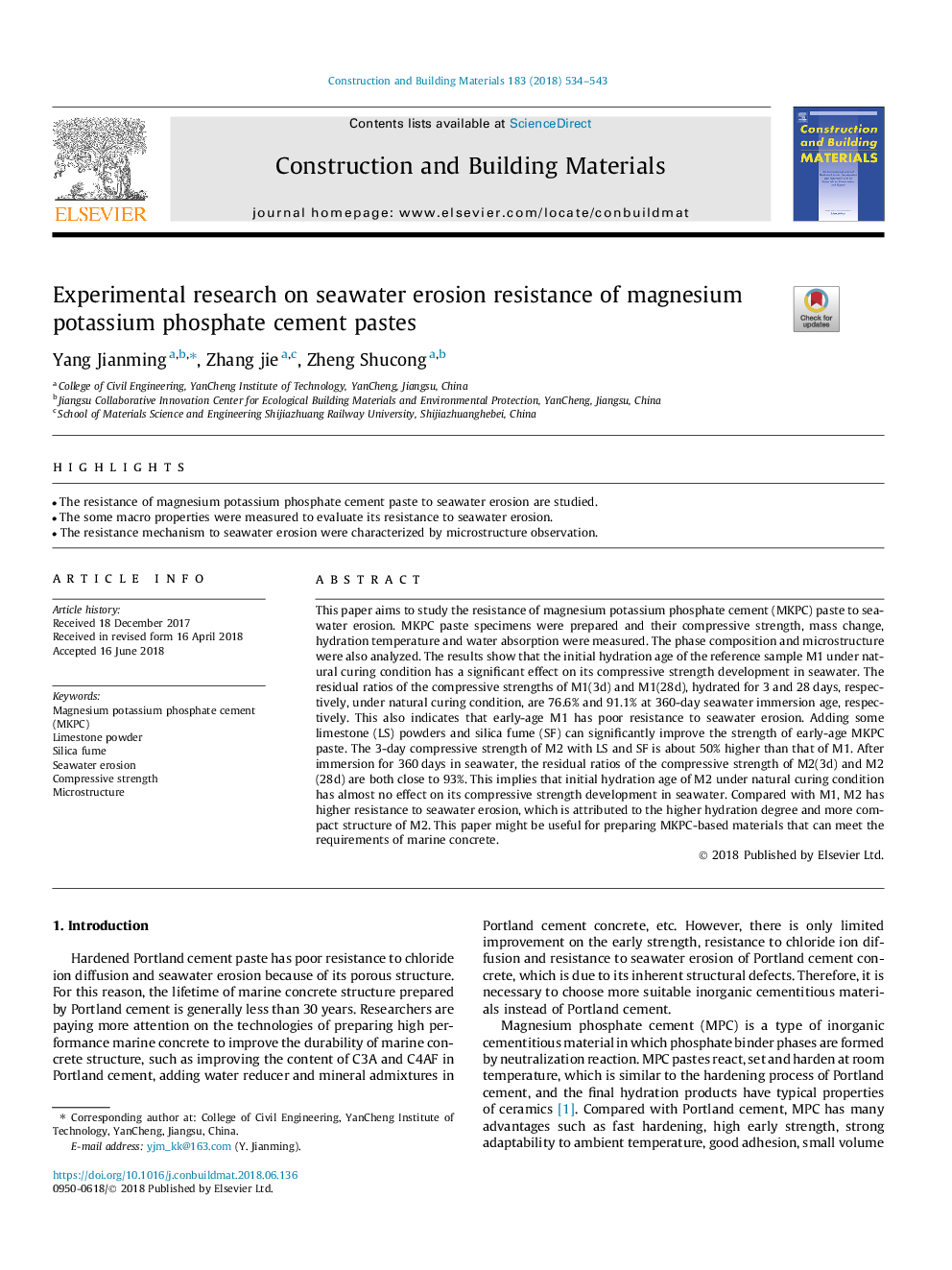| Article ID | Journal | Published Year | Pages | File Type |
|---|---|---|---|---|
| 6712279 | Construction and Building Materials | 2018 | 10 Pages |
Abstract
This paper aims to study the resistance of magnesium potassium phosphate cement (MKPC) paste to seawater erosion. MKPC paste specimens were prepared and their compressive strength, mass change, hydration temperature and water absorption were measured. The phase composition and microstructure were also analyzed. The results show that the initial hydration age of the reference sample M1 under natural curing condition has a significant effect on its compressive strength development in seawater. The residual ratios of the compressive strengths of M1(3d) and M1(28d), hydrated for 3 and 28â¯days, respectively, under natural curing condition, are 76.6% and 91.1% at 360-day seawater immersion age, respectively. This also indicates that early-age M1 has poor resistance to seawater erosion. Adding some limestone (LS) powders and silica fume (SF) can significantly improve the strength of early-age MKPC paste. The 3-day compressive strength of M2 with LS and SF is about 50% higher than that of M1. After immersion for 360â¯days in seawater, the residual ratios of the compressive strength of M2(3d) and M2(28d) are both close to 93%. This implies that initial hydration age of M2 under natural curing condition has almost no effect on its compressive strength development in seawater. Compared with M1, M2 has higher resistance to seawater erosion, which is attributed to the higher hydration degree and more compact structure of M2. This paper might be useful for preparing MKPC-based materials that can meet the requirements of marine concrete.
Keywords
Related Topics
Physical Sciences and Engineering
Engineering
Civil and Structural Engineering
Authors
Yang Jianming, Zhang jie, Zheng Shucong,
